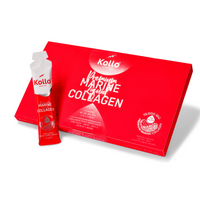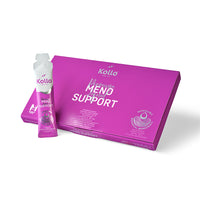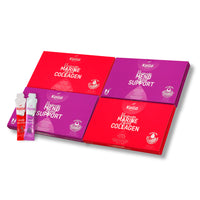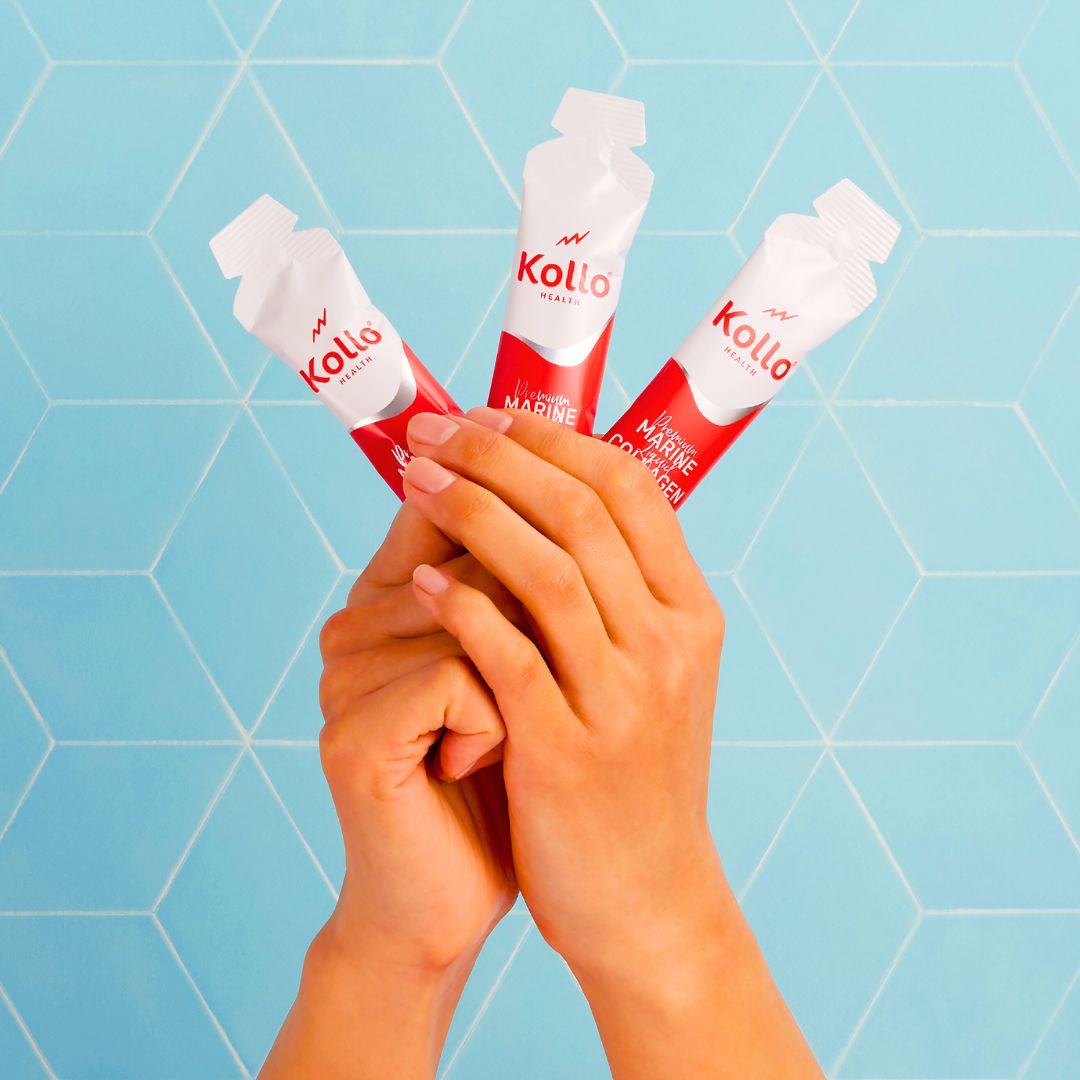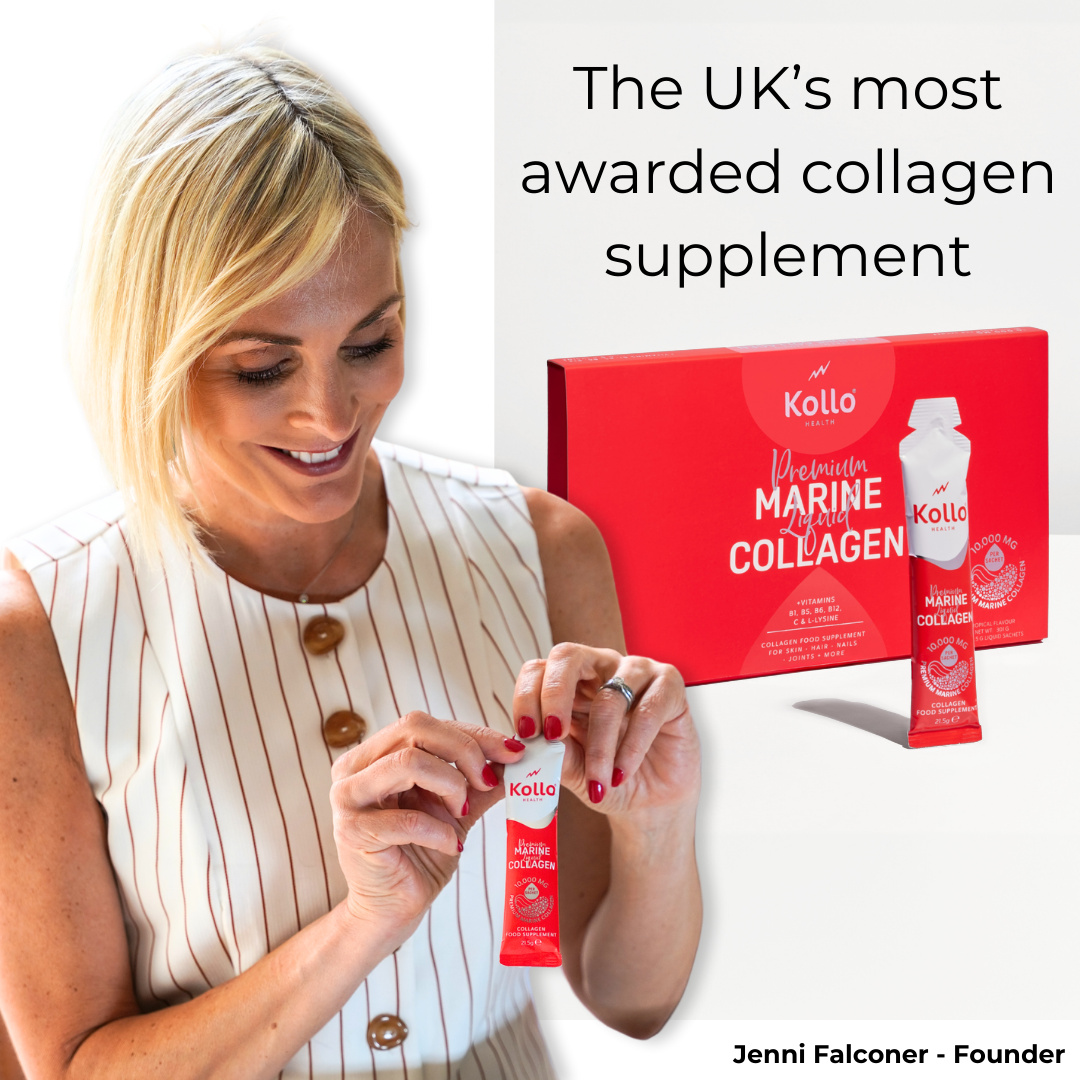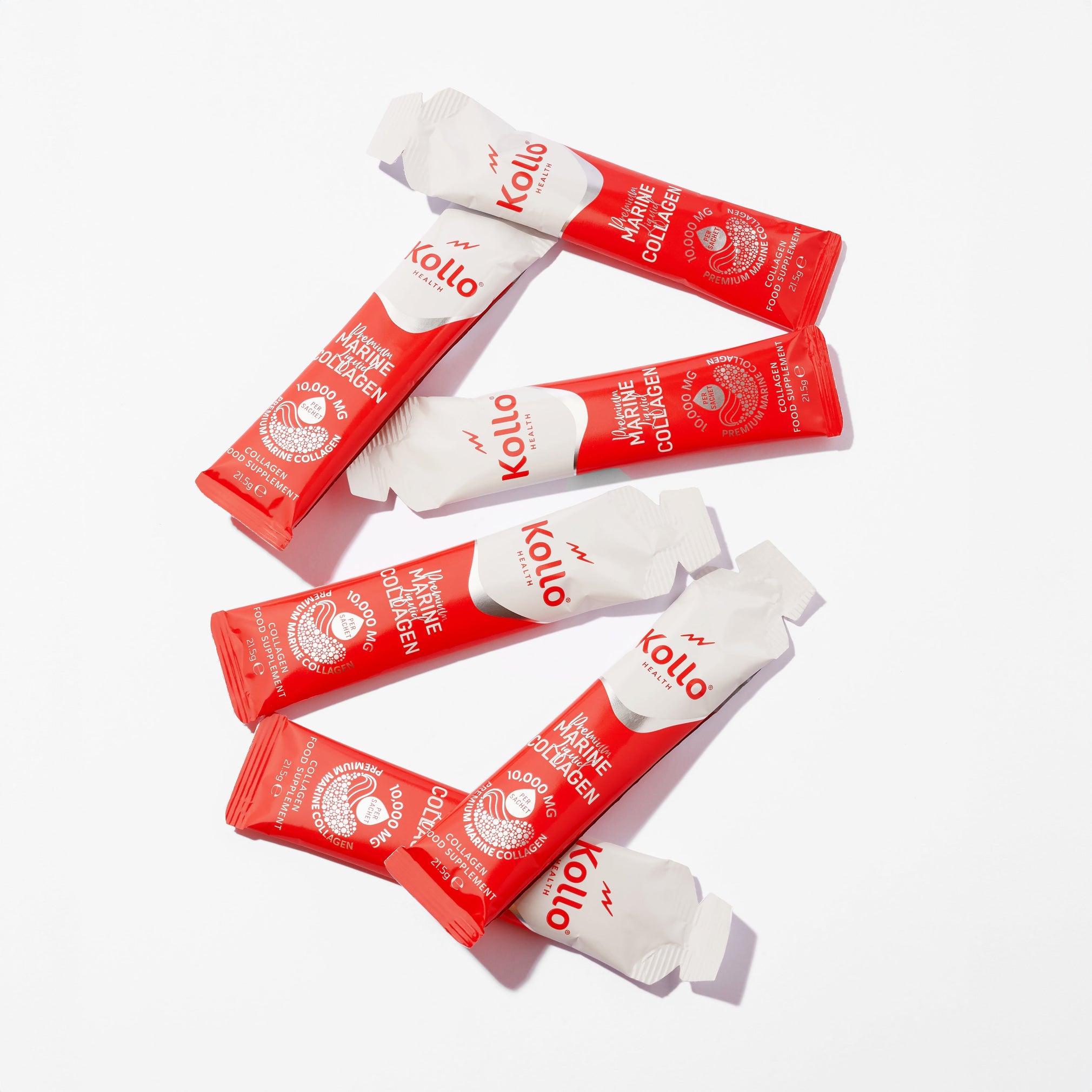Do collagen supplements interact with medications?
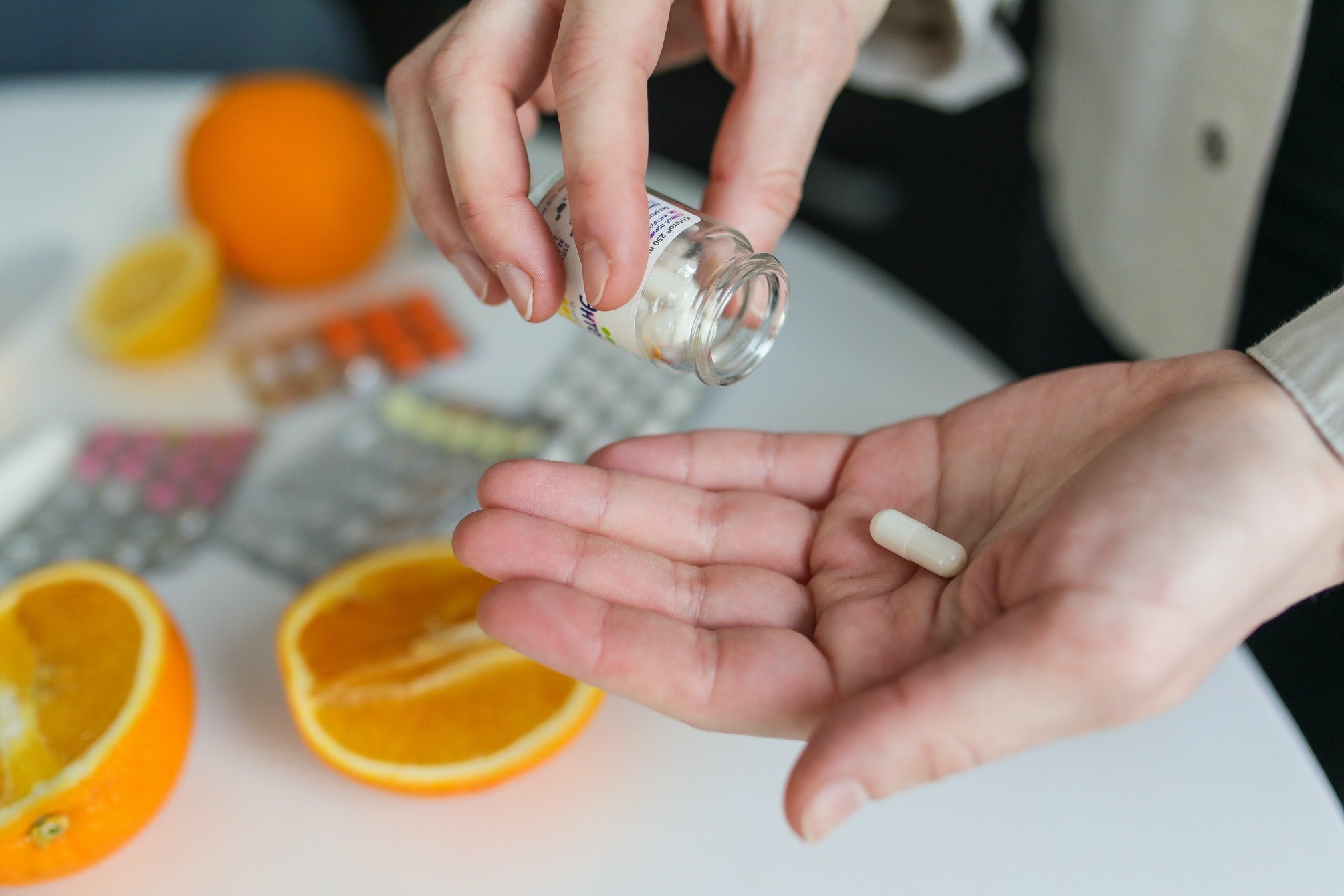
Do collagen supplements interact with medications?
Interactions between supplements and medicinal drugs are something that people should be wary of. Herbal remedies, vitamins and minerals can be excellent for your health. But they can sometimes be dangerous for people on medications. One example of this is garlic supplements interacting with anticoagulants. These meds are often taken by people who are at a high risk of heart attack or stroke. The interaction can increase the individual’s risk of excessive bleeding. But do collagen supplements interact with medications?
The simple answer is as follows. If you take medication, you should consult your healthcare provider before trying collagen supplements. Read on to learn more.
What is in collagen supplements?
To understand the potential for collagen supplements to interact with medications, it’s useful to know what’s in your supplement. Drug-supplement interactions generally take place on a compound-to-compound basis. Let's go back to the example in the introduction. We can trace the blood thinning properties of garlic to ajoene, which is an organosulfur compound. This compound prevents the aggregation of platelets. It thus amplifies the effects of anticoagulant medications like warfarin, clopidogrel and aspirin.
In the majority of cases, collagen supplements contain animal-derived collagen. It usually comes from fish, cows or pigs. It is a protein, so it consists of amino acids. You would find the same things in the protein content of your steak or roast chicken. So, with that being the case, does hydrolysed collagen interact with medications?
It might seem like the obvious answer is no, but the reality is a little more complicated. Yes, it’s safe to eat protein from your favourite foods. But that doesn’t necessarily mean you can assume collagen peptides will have no interaction with your medications.
Do collagen supplements interact with medications?
Consider the idea that it is difficult to over-consume protein through whole foods. Work your way through a tasty slab of steak and you probably felt full up by the time you reached the last few bites. On average, a steak weighing 100 grams will contain roughly 23 grams of protein.
Let’s compare that to downing a liquid collagen drink like Kollo. A single serving of Kollo provides 10 grams of protein, and most people could swallow two servings of this at once without feeling full. That would be 20 grams of protein and you would easily feel like you could drink more. This would go against the recommendation to not exceed the daily dose as stated in the instructions, but it is still something a person could do.
What this means is that, when you ask “Do collagen supplements interact with medications?” you are actually asking about drug interactions with high-protein diets. Now, generally speaking, high-protein diets are very safe. But, as with everything, there are always exceptions.
Are there any specific medications known to interact negatively with collagen supplements?
In this section, we will take a look at how a high-protein diet in the form of collagen supplementation might impact two very common medications.
Collagen and blood pressure medication
There is some evidence that a high protein diet could interfere with the effects of certain blood pressure medications:
-
Warfarin: Some studies indicate a high-protein, low-carbohydrate diet might decrease the effectiveness of warfarin.
-
Propranolol: A study from 1986 found that the removal rate of propranolol from the body increases with the intake of a high-protein meal. The consequence of this was that the drug became less effective. There is no specific test involving collagen. But one could surmise that taking collagen supplements with propranolol could increase the risk of bradycardia and hypotension.
Collagen and thyroid medication
Thyroid disease is a very prevalent condition. A significant percentage of the population has evidence of thyroid autoantibodies.
The two main types of thyroid disease are as follows. Hyperthyroidism is where your body produces an excess of thyroid hormones. Hypothyroidism, on the other hand, is where the production of these hormones is too low. Doctors treat the former with medications called thionamides. The latter requires a daily hormone replacement tablet like levothyroxine.
Currently, there is no evidence of supplement-drug interactions between thyroid medication and high-protein diets. Thus, collagen supplementation should be safe for people on thyroid medications.
What can we conclude from this?
The conclusion you should take from this is simple. Though there is very little evidence of a high protein diet having negative interactions with medications, it can happen. There is some evidence of a negative interaction with certain blood pressure medications. The same may be true of other medicinal drugs as well. But there are many variables involved, including the amount of protein you take and the type of medication you are on.
Another thing to bear in mind is that many collagen supplements contain more than just hydrolysed collagen. Some, like Kollo, also include other bioactive compounds like B vitamins, vitamin C and l-lysine. These other compounds may also interact with your medications in some cases. You might be an expert in pharmaceuticals with specialist knowledge of these particular compounds and the medication you take. But if you are not, it’s wise to assume you don’t know what the interactions might be.
The best advice is to consult your healthcare provider before you buy any collagen supplements. The same advice would apply to almost anyone on medication before they buy any type of supplement. Your doctor will be able to consider your full medical history and make an informed recommendation from a position of expertise. There is no one-size-fits-all answer as to whether collagen supplements interact with medications.
Is Kollo a trustworthy brand?
Naturally, this is for you to determine, but we can tell you a few things that might help you make a decision. First, we aim for maximum transparency throughout our operations. The collagen peptides we use are Naticol marine collagen. This has a fully traceable supply chain and focuses on ethical, sustainable practices. A core principle is preserving the purity and integrity of the product at all times.
If you explore our website, you will find that we provide full details about everything that goes into Kollo. We also give you information about research that indicates its effectiveness for the benefits of collagen. We have an entire section dedicated to displaying customer reviews from verified buyers. Our blog section is full of informative articles like this one. There, we give honest answers to common questions about collagen, its benefits and our supplement in particular.
Another important factor is that Kollo has earned 'Informed Sport' certification. This means our product passed tests to ensure its eligibility as a supplement for professional athletes. These individuals have to undergo scrutiny regarding performance-enhancing substances. In short, it is a globally-recognised certification. What's more, it emphasises the extent to which we go to ensure Kollo is a trustworthy brand.
Following the science
Another thing that makes Kollo a reliable brand is our commitment to science at every stage of development. We looked at the following things to inform the creation of our collagen shots:
-
Dosage: We looked at many studies and reviews into the effectiveness of collagen for various benefits. We found that a dosage of 10 grams per day would be optimal for experiencing the maximum range of benefits.
-
Bioavailability: We discovered that marine collagen peptides, like the ones we use, are the most bioavailable. This means they are quick and easy for your body to absorb. We also found that a liquid suspension of collagen further enhances bioavailability. This is because your body doesn’t have to break anything down to access the collagen peptides.
-
Added ingredients: We identified the most important additional nutrients to enhance collagen production. They are certain B vitamins, vitamin C and l-lysine. So we added these to the formula to ensure your body will receive and utilise the collagen in Kollo.
-
Other considerations: We want our customers to enjoy taking Kollo. Thus, we added natural flavourings to the formula to give it a delicious tropical taste. We made sure to avoid adding any sugars to the mix as sugars reduce the body’s uptake of other nutrients in some circumstances.
This frank and honest article advises you to seek medical advice before purchasing Kollo if you are taking any medications. We are committed to your health and safety so we would never advise you to take any risks that might compromise your health. Kollo is all about wellness and positivity and we want to impart those values to anyone who interacts with our brand or products.
Final thoughts
So do collagen supplements interact with medications? The answer is “possibly” so you should speak with your healthcare provider before making a decision. If you find it is definitely safe for you to take a collagen supplement, the multi-award winning Kollo should definitely be on your radar. You can learn more about us and our product by exploring our website.
If you still have any questions about Kollo, please don’t hesitate to get in touch via our ‘Contact’ page. You can reach us via email or social media and will always endeavour to answer your queries in a timely manner.
